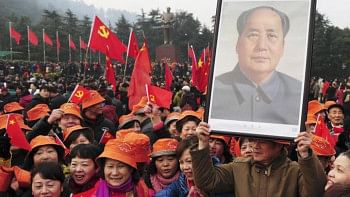Bhutan to stay out of regional connectivity
Bhutan has decided to stay out “for the time being” of a sub-regional road connectivity that would link the country with Bangladesh, India and Nepal.
Bhutanese foreign ministry in a statement said it decided to give its consent to the Bangladesh, India and Nepal motor vehicle agreement for movement of passengers and cargo, signed in Thimphu of Bhutan in June 2015, for early implementation of the pact “without any obligation to Bhutan".
The statement issued on Thursday said "recognising the importance of connectivity for expansion of economic cooperation, the transport ministers of Bangladesh, Bhutan, India and Nepal had inked the Motor Vehicles Agreement for Regulation of Passenger, Personal and Cargo Vehicular Traffic between Bangladesh, Bhutan, India and Nepal (BBIN MVA)" on June 15, 2015, in Thimphu.
"While the other three countries have already ratified the agreement, the Royal Government of Bhutan is in the process of completing its internal procedures for ratification, to address the concerns raised by the domestic stakeholders.
"In the meanwhile, to facilitate the early implementation of BBIN MVA, the royal government has decided to give its consent for the entry into force of the agreement among the three member states [Bangladesh, India and Nepal] without any obligation to Bhutan. The agreement will enter into force for Bhutan after its ratification process is completed,” the statement said.
However, the statement hastened to add that Bhutan government “views BBIN as a platform, encompassing key areas such as energy, trade, information, communication and technology. Strengthening regional cooperation is especially significant for a landlocked country like Bhutan and therefore, the royal government remains fully committed to the BBIN process, including BBIN motor vehicle agreement.”
While India, Bangladesh and Nepal has ratified the deal, Bhutan's parliament is yet to do so in view of opposition from the parties there on the ground of enhanced traffic and air pollution and potential loss of jobs if vehicles from other countries are allowed free movement in Bhutan, sources said.
Bhutan Prime Minister Tshering Tobgay has reportedly conveyed to the other three countries that he does not have the required number in the Upper House of parliament to have the BBIN MVA ratified.
The sub-regional road connectivity was agreed on after the Saarc motor vehicles agreement was vetoed by Pakistan at the Saarc summit in Kathmandu in November 2014.

 For all latest news, follow The Daily Star's Google News channel.
For all latest news, follow The Daily Star's Google News channel. 



Comments